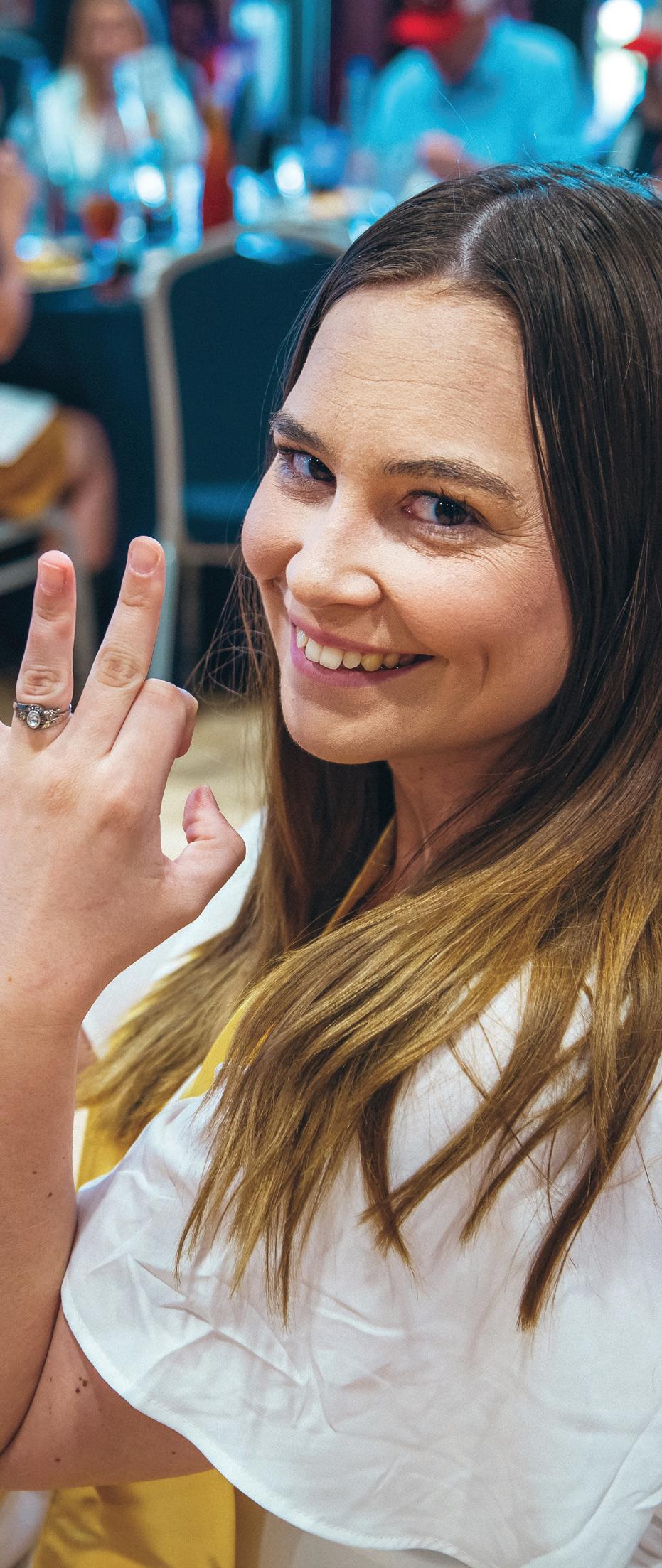
3 minute read
A REAL-WORLD PIONEER: OLIVIA BRODERSEN
LAURA FUCHS
Student Support Specialist
Standing in front of the 4th grade blackboard in tears, Olivia Brodersen saw she was in a new world, one where she needed to fight for her rights as a deaf student. The teacher had just reprimanded her for not knowing how to solve a math problem. Even with accommodations, the transition from a school for deaf children, to a public school system, turned out to be Olivia’s catalyst for self-advocacy and taught her to muster the courage to navigate through obstacles. After recess, she stood up for herself and told the teacher, “This isn’t fair.”
After processing that incident, Olivia didn’t allow herself to be frustrated. She realized, “I'm not with deaf peers anymore. These are hearing people and that was a really huge step out into the real world, and I didn't know how to navigate that real world without the support that I used to have.” Challenges to learning fell like slow-motion dominoes when Olivia began to confront teachers about her disability. Natalie Schleining, Olivia’s Student Support Specialist at the SALT Center, said, “She doesn't expect anybody else to do it for her. It's on her and I think that's part of the fire in her. She takes total responsibility for her life.”
“When you think about David Livingston White, and all of the determination, the perseverance, she really does check every one of those boxes,” Emily Pendleton, Olivia’s first Student Support Specialist, said. Imagine trying to read lips during the pandemic; masks were a new hurdle. Olivia tactfully explained to professors what accommodations she needed, like closed captioning, but some balked. Lab class participation was also met with resistance. “Even in the groups nobody would ever want to work with her or partner up with her—even the TAs,” Pendleton said. During weekly meetings, Pendleton reinforced that Olivia’s disability did not define her and encouraged her to pivot her thinking: “You will have to break barriers, but you're the person to do this.”
Graduating this spring with a Bachelor of Science degree in Molecular and Cellular Biology, with an emphasis in science communication, Olivia will be a student in the Department of Education’s accelerated ‘Teach for Arizona’ master’s program this fall. Schleining believes Olivia’s perseverance of self-advocacy was the defining factor in her acceptance. Before the interview, Olivia told Schleining, “‘I'm going to be good. I got this’ . . . She was right.”
Olivia is also a disability rights advocate. While working in a class prep lab, Olivia fought for a lower desk for a student in a wheelchair. She told her boss, “Why don't we just do that instead of their partner doing all the work?” Olivia has seen that students with disabilities want to be included in science, but the field has lagged in both available educational materials and the awareness of professors. “I'm trying to break that up,” Olivia said. Olivia aspires to enter the field of science illustration and tackle deficient areas, like the color-blind world of science modeling.
“She's very aware and I think even within her own struggles, she would never want somebody to ‘not have,’ and even if they can't speak up, she's going to be the one to speak up for them and equalize the playing field. . . I couldn't think of anybody better to be the pioneer of that,” Pendleton said.
Olivia’s best advice for students in the SALT Center is “Fail. . . failing really leads you to get out to the real world to figure out what it is that worked and what didn't work—to really let you persevere through life—especially being a scientist.”









